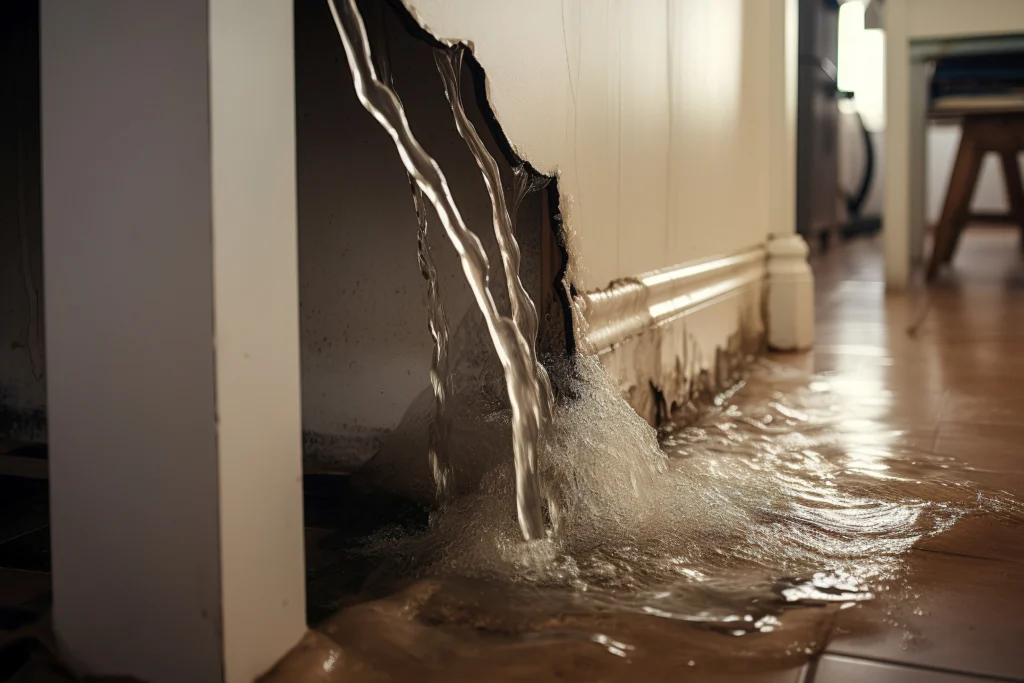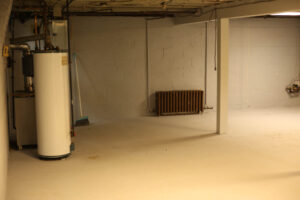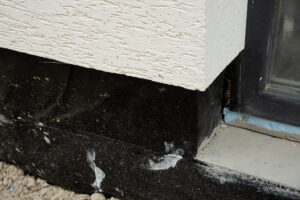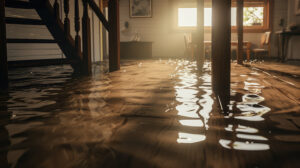Most basements are, for most homes, an extension of the main house. When properly maintained, an underground cellar can serve as an extra living space when you have many guests around. You can also transform the room to a gym space or even workshop.
However, this might be impossible when it is wet. A wet basement is one that constantly suffers from water and humidity issues. This article talks about the most common causes of a wet basement and things you can do to avoid it.
Hydrostatic Pressure
Cracked walls can let in ground and rainwater during a rainy season. Water table below the cellar floor may also rise, over time, leading to collection of water on the floor.

A Leak From A Burst Pipe
Leaking and broken plumbing pipe network may also lead to accumulation of water. When all this water settles on the floor of a cellar, it exerts pressure on the floor, something that could lead to caving in if left unattended. This pressure is known as hydrostatic pressure. To prevent all this, you should install a sump pump at the lowest point on the floor. The pump sucks all the water and directs it out of the room.
Yard Run off Water
During initial construction, walls are backfilled with yard dirt. When the dirt settles over time, it may cave in, exerting pressure around the walls. This pressure cracks the walls where yard run off water seeps through. To prevent this problem, have your yard incline away from the cellar walls. Dig the dirt out around the walls, and then back fill it while compacting it layer by layer. Finish the job by making it slope away from the walls, towards the yard. As you do that, ensure to use little to moderate compaction to prevent cracking the walls due to pressure of the dirt.
Faulty or Missing Gutter System
Missing or faulty gutter system leads to flooding on the yard. If not addressed soon, all this standing water may somehow find its way back into your cellar through seepage. To address this issue install a proper gutter system that will collect all your roof water to prevent it from falling close to your walls. Then install proper downspouts and let them take the roof water away from your walls, towards the yard.
Yard Vegetation
No matter the temptation to introduce and increase aesthetic appeal of the yard through greenery, do not plant trees so close to the house. Over time, the root system of the trees will reach the walls and make them crack, thereby making them susceptible to water seepage. If you already have some around the house, you should cut them down as soon as possible. You will also save yourself the headache and cost of constant roof cleaning.
Inadequate Ventilation
Humidity is another major cause of a wet cellar. This happens when the room is improperly ventilated. While there is little you can do about inadequate ventilation after the initial construction, you can introduce or increase ventilation by installing a dehumidifier. If you can, it is advisable to construct some additional cellar windows.
Neighbor’s run off Water
At times, you may still have water problems in the cellar, even after taking the necessary precautions. At that point, you are wondering what could be wrong with your structural layout. If you are at this stage, consider checking your neighbor’s yard for any run off water. Your neighbor’s roof and yard run off water may find its way into your cellar. This happens when the neighbor’s property is raised above yours in a neighborhood with properties so close to each other. When this is the case, approach your neighbor with utmost respect and explain to them your concern. Then amicably come up with a common solution to the problem.
Faulty Plumbing System
Having ascertained that your exterior situation is not the cause of water issues in the cellar, consider checking the interior. Leaking and broken pipes and faucets may be causing humidity and water accumulation in the underground. To avert this problem, repair the leaking and replace the broken pipe network passing through this area.
Living with a wet cellar is critical to the structural integrity of the whole house. It could also make you and your family sick due to mold and mildew. It is therefore advisable to avert water and humidity issues the moment you notice them. If you cannot do it yourself, invite a professional contractor to advice and do the corrections.



